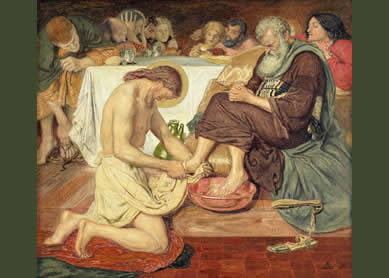Jesus is mentioned approximately two dozen times in the Qur’an; and these passages are in dialogue with biblical, as well as, nonbiblical traditions concerning Jesus.
He is mentioned in three primary ways in the Qur’an. First, Jesus is mentioned in the Qur’an in order to refute the incarnation as well as the trinity. So, we find in chapter 5 of the Qur’an that Jesus is equated to Adam whom God created from clay and said to him, “Be” and he became. And this passage is in dialogue with the teachings of Paul in 1 Corinthians 15 wherein all humanity dies in Adam and is receiving life through Christ, and Christ is the second Adam.
Second, Jesus is mentioned in the Qur’an in order to defend the idea of an immaculate conception or the virginity of Mary. And we find in chapters 3 and 19 of the Qur’an, the kind of mention that baby Jesus or the infant Jesus came forth to the masses in order to defend the chastity of his mother; and these traditions are in dialogue with the Arabic infancy gospel or [and] the Protoevangelium of James.
Third, Jesus is mentioned in the Qur’an in order to prepare the way for Muhammad and the religion that he brings, namely, Islam. So, we find in chapter 61 of the Qur’an, a famous passage where Jesus proclaims and prophecies the coming of an individual called Ahmed, in Arabic meaning, “he who is praised” or “he who is more praised,” a title that is in dialogue, in conversation with the Gospel of John in chapters 14 through 16, namely the comforter or the advocate.
Early Islamic scholars within the first two centuries of Islam argued that the advocate in the Gospel of John was none other than Muhammad in the Qur’an; and the relationship that is drawn between them concerns the Arabic term “Ahmed”, being “more praised” and the Aramaic term “Mawhamana” meaning the advocate or the comforter.


